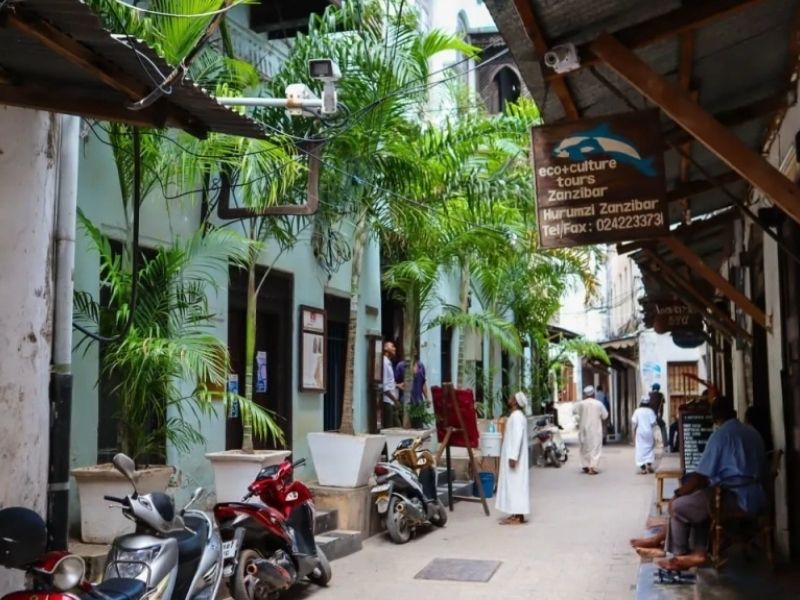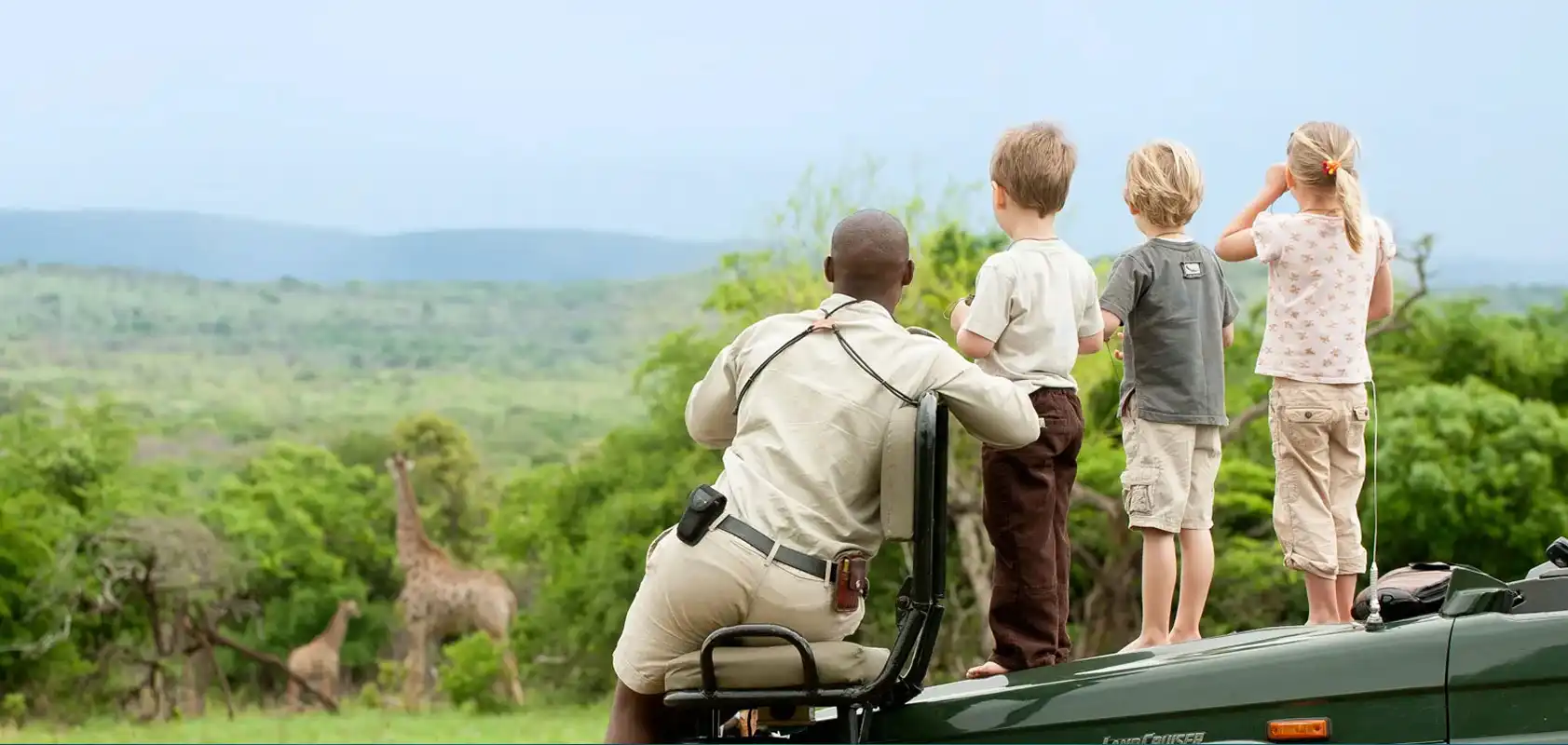Hello in Swahili: Your Friendly Guide to Speaking Like a Local in Tanzania
When you land in Tanzania, there's something special about connecting with locals in their own language. Let me share some everyday Swahili phrases that'll help you navigate your safari adventure with confidence and earn warm smiles from Tanzanians along the way.
The Basics: Saying Hello in Swahili
"Jambo!" This is the friendly, casual way to say hello in Swahili that you'll hear everywhere. But if you want to sound more like a local, try "Habari!" (How are you?) or "Mambo!" (How's it going?) for a more relaxed greeting. Locals love it when visitors make an effort to speak their language, even if it's just these simple greetings.
Essential Swahili Greetings for Different Times of Day
- Morning greetings: "Habari za asubuhi" (Good morning)
- Afternoon hello: "Habari za mchana" (Good afternoon)
- Evening greetings: "Habari za jioni" (Good evening)
- Everyday Phrases That'll Make Locals Smile
- Want to sound more natural? Here are some common phrases Tanzanians use daily:
- "Asante" - Thank you
- "Karibu" - You're welcome (also means 'welcome')
- "Tafadhali" - Please
- "Nzuri" - Good (use this to respond to "Habari?")
- "Ndio" - Yes
- "Hapana" - No
Quick Tips for Speaking Swahili
Remember, Swahili is a tone-friendly language. Don't worry too much about perfect pronunciation - Tanzanians appreciate your efforts to speak their language. The key is to speak with a smile and show enthusiasm.
Cultural Note
In Tanzania, greetings are important. Take time to say hello properly - it's not uncommon for greetings to last several exchanges. This shows respect and helps build rapport with locals.

A Lady Selling Tomatoes in Tanzanian Market
When to Use ‘Habari,’ ‘Jambo,’ and Other Popular Phrases
Swahili offers a variety of greetings depending on the situation. ‘Habari’ (meaning “How are you?”) is a versatile greeting used in both formal and informal settings. It's often followed by the context, such as ‘Habari za asubuhi’ (Good morning) or ‘Habari za safari’ (How was your trip?). ‘Jambo’, on the other hand, is a friendly, general “Hello” often used with tourists or in casual encounters. Other phrases like ‘Shikamoo’ are used to show respect to elders, while ‘Mambo’ or ‘Vipi’ are more casual greetings among peers.
Non-Verbal Greetings: The Role of Handshakes and Smiles
In Tanzanian culture, greetings extend beyond words. A warm handshake is a common way to greet someone, especially in formal or semi-formal settings. For casual encounters, a friendly wave or simply making eye contact while smiling suffices. When meeting elders or individuals of higher status, you might accompany the handshake with a slight bow as a sign of respect. Smiles play a significant role in conveying warmth and friendliness, making non-verbal gestures a key aspect of Tanzanian hospitality.
Greetings Beyond ‘Hello’: Building Rapport with Locals
In Tanzania, greetings often go beyond a simple “hello” and are seen as an opportunity to connect. Asking follow-up questions like ‘Habari za familia?’ (How is your family?) or ‘Unaendeleaje?’ (How are you doing?) demonstrates genuine interest and builds rapport. Taking time to engage in this back-and-forth exchange reflects your respect for Tanzanian culture and helps strengthen bonds with locals.
Swahili Greetings for Different Times of Day
Swahili greetings change with the time of day. In the morning, say ‘Habari za asubuhi’ (Good morning). For the afternoon, use ‘Habari za mchana’ (Good afternoon), and in the evening, greet someone with ‘Habari za jioni’ (Good evening). These time-specific phrases not only show politeness but also reflect an awareness of the culture's nuances.
Practicing Swahili: Tips for Sounding Authentic
To sound more authentic when speaking Swahili, focus on pronunciation and tone. Swahili words are phonetically straightforward, so practice saying each syllable clearly. Mimic native speakers by listening to local radio stations or watching Swahili videos. Avoid rushing through greetings; take your time to deliver them with sincerity. Adding a friendly smile or enthusiastic tone also goes a long way in making your greeting feel genuine.

Stone Town Zanzibar
Swahili Words and Phrases to Use During Your Safari
When on safari, impress locals with these phrases:
- ‘Twende’ – Let’s go.
- ‘Nzuri sana’ – Very good.
- ‘Wapi simba?’ – Where are the lions?
- ‘Asante’ – Thank you.
- ‘Pole pole’ – Slowly, slowly (used often to describe the pace of life or travel).
These simple words will help you engage more deeply with guides, lodge staff, and locals you meet along the way.
The Importance of Greeting Etiquette in Tanzanian Culture
In Tanzania, greeting etiquette is deeply rooted in respect and tradition. It’s customary to greet elders and those in authority first, often using ‘Shikamoo’ to show deference. Ignoring a greeting or failing to respond is considered impolite. This cultural emphasis on politeness ensures harmonious social interactions and strengthens community bonds.
How Locals Appreciate Your Effort to Speak Swahili
When you make an effort to speak Swahili, locals genuinely appreciate it, often responding with smiles and enthusiasm. They value your interest in their language and culture, which fosters goodwill and makes interactions more meaningful. Even a simple ‘Jambo’ or ‘Asante’ can leave a lasting positive impression.
Learning More Swahili: Resources for Travelers
If you want to expand your Swahili knowledge, there are plenty of resources available. Apps like Duolingo and Memrise offer beginner-friendly lessons, while platforms like YouTube provide video tutorials. Books such as “Simplified Swahili” by Peter Wilson are great for self-study. For a more immersive experience, consider engaging with locals during your trip or enrolling in short language courses available in major Tanzanian cities.

Our Tour Guide Teaching Young Lads Pronouncing Hello in Swahili
Ready to Practice?
The best way to learn is by doing. Start with "Jambo" and build from there. Don't be shy - Tanzanians are patient and appreciative of visitors who try to speak their language.
Planning your Tanzania adventure? Let us help you experience the warmth of Tanzanian hospitality firsthand. Book your safari with Makisala today, and we'll make sure you're comfortable every step of the way - from your first "Jambo" to your final "Kwaheri" (goodbye).
Ready to start your Tanzanian adventure? Contact now to plan your perfect safari!
Ready to Start Your Journey?
Let us help you create memories that will last a lifetime. Explore our destinations and find your next adventure.